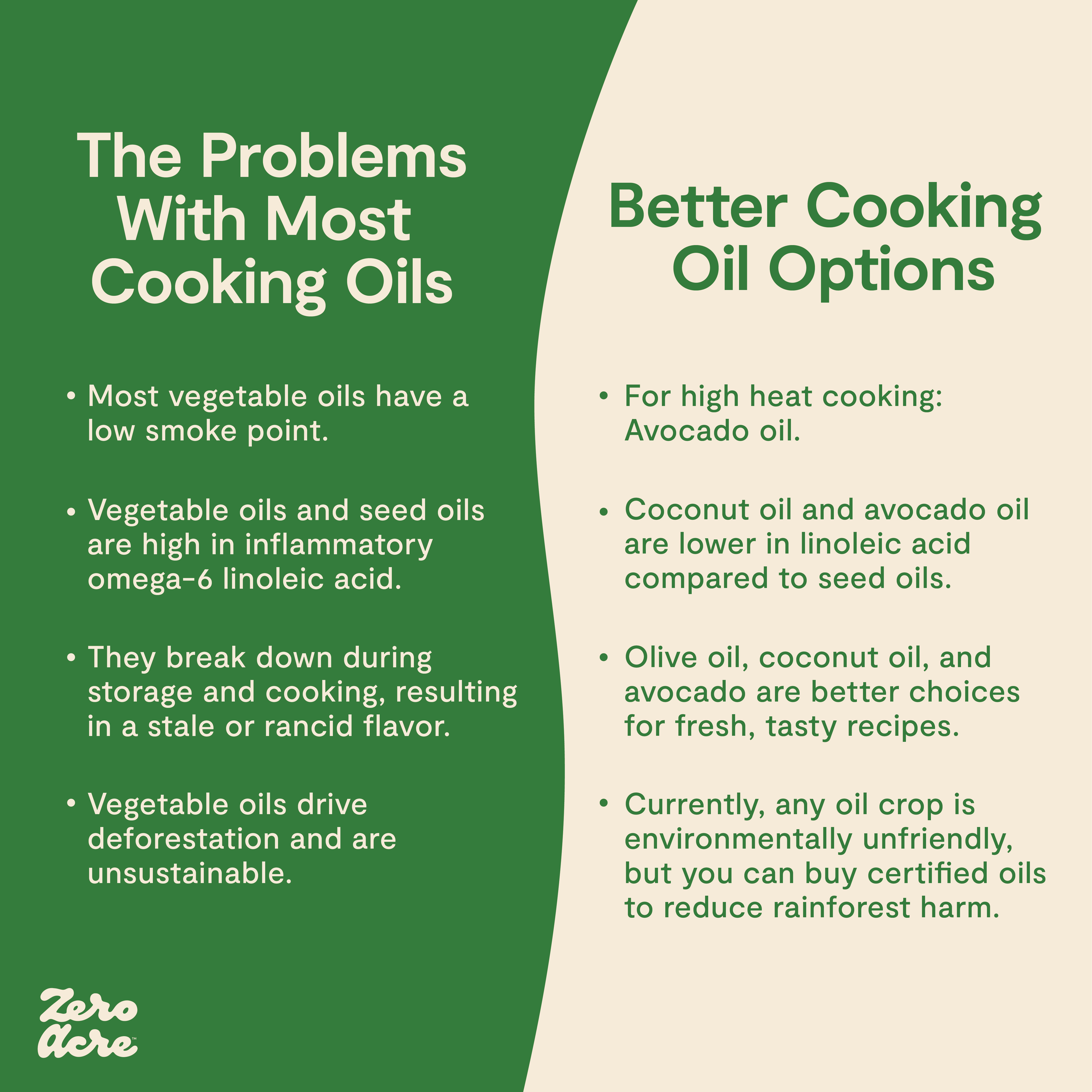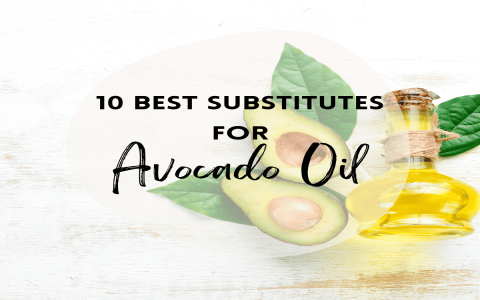Understanding the Problem: Why Look for Coconut Oil Substitutes?
Coconut oil has become a kitchen staple for many, thanks to its rich texture and unique flavor. However, not everyone can use it. Some people have allergies, while others want to avoid its high saturated fat content. Actually, the American Heart Association points out that coconut oil is about 82% saturated fat, which is higher than butter or lard. Excessive saturated fat can raise LDL ("bad") cholesterol, potentially increasing the risk of heart disease . Therefore, the question arises: what can I substitute for coconut oil in my recipes?
For those who love baking, frying, or even making salad dressings, finding the right coconut oil substitute is crucial. It’s not just about health; sometimes, you simply run out of coconut oil and need a quick fix. That’s where knowing your options comes in handy.
Exploring the Solution: Top Alternatives to Coconut Oil
There are several oils and fats that can step in when coconut oil isn’t an option. Let’s break down the best substitutes, their benefits, and how they compare:

- Olive Oil: A classic choice, olive oil is rich in monounsaturated fats and antioxidants. It’s perfect for low to medium-heat cooking and salad dressings .
- Avocado Oil: With a high smoke point and mild flavor, avocado oil is ideal for high-heat cooking and frying. It’s packed with heart-healthy fats .
- Butter: For baking, butter is a great coconut oil substitute. It brings richness and a familiar taste to cookies and cakes .
- Vegetable Oil: Neutral in flavor and affordable, vegetable oil works well for sautéing and deep frying.
- Algae Oil: This lesser-known oil boasts a neutral flavor and the highest smoke point, making it versatile for all types of cooking .
Interestingly, some oils like canola and grapeseed also fit the bill, but they may be higher in omega- fatty acids, which can cause inflammation if consumed excessively . Therefore, it's wise to balance your choices.
Comparison Analysis Table: Olive Oil vs Avocado Oil
| Project A: Olive Oil | Project B: Avocado Oil |
|---|---|
| Best for low to medium-heat cooking, salad dressings | Best for high-heat cooking, frying, roasting |
| Smoke point: ~375°F (extra virgin) | Smoke point: ~520°F |
| Flavor: Fruity, peppery, robust | Flavor: Mild, buttery, neutral |
| Rich in monounsaturated fats and antioxidants | High in monounsaturated fats, vitamin E |
| Great for Mediterranean dishes | Works in a wide range of cuisines |
Case Study: Real-Life Substitution Experience
In our team’s recipe testing case, we ran out of coconut oil while preparing a batch of banana bread. We switched to avocado oil, using a 1: ratio. The result? The bread had a moist texture and a subtle, buttery flavor. No one missed the coconut! This hands-on experience taught us that knowing what can I substitute for coconut oil can save the day and even improve your dish.
Counterintuitively, some tasters even preferred the avocado oil version, noting its lighter mouthfeel. This just goes to show that experimenting with substitutes can lead to tasty surprises.
Step-by-Step Guide: How to Substitute for Coconut Oil
Ready to swap out coconut oil in your favorite recipes? Here’s a simple guide to get you started:
- Identify the Purpose: Are you baking, frying, or making a salad dressing? The cooking method will influence your substitute choice.
- Choose Your Oil: For high-heat cooking, pick avocado or algae oil. For baking, try butter or olive oil. For neutral flavor, go with vegetable oil.
- Use the Right Ratio: Most substitutes can replace coconut oil in a 1: ratio. For example, use cup of olive oil for cup of coconut oil.
- Adjust for Flavor: Some oils have stronger flavors. If you want a neutral taste, avoid extra-virgin olive oil or opt for refined avocado oil.
- Monitor Texture: In baking, butter and coconut oil are both solid at room temperature. If your recipe relies on this, choose a solid fat substitute.
However, it is worth noting that not all substitutes behave exactly like coconut oil. For instance, butter adds richness but can alter the final texture of baked goods.
Common Misconceptions: What You Should Know
Real Data: The Health Angle
According to a recent American Heart Association advisory, replacing saturated fats like coconut oil with unsaturated fats (such as olive or avocado oil) can lower cardiovascular disease risk as much as cholesterol-lowering statin drugs . In fact, avocado oil’s high smoke point (about 520°F) makes it safer for high-temperature cooking, reducing the risk of harmful compounds forming during frying .
For those wondering what can I substitute for coconut oil in health-focused recipes, these oils are not only practical but also beneficial for your heart.
LSI Keywords and Variants in Action
Throughout this guide, you’ve seen LSI keywords like “healthy oil alternatives,” “baking with olive oil,” “avocado oil for frying,” “neutral cooking oils,” and “butter substitute.” These terms help you find the right match for your needs, whether you’re looking for a vegan option or just want to try something new.
Practical Examples: Everyday Substitutions
For instance, if you’re making a stir-fry and run out of coconut oil, reach for avocado oil. Its mild flavor won’t overpower your veggies, and it handles high heat like a champ. If you’re baking cookies, butter or even ghee can provide the right texture and richness.
Specifically, olive oil shines in salad dressings and Mediterranean dishes, while vegetable oil is a wallet-friendly choice for deep frying. The key is to match the oil to the dish and cooking method.

Transitional Insights: What to Remember
Interestingly, while coconut oil has its place in the kitchen, there’s no need to panic if you run out. There are plenty of substitutes that work just as well, if not better, depending on the situation. However, always check the flavor profile and smoke point before making a switch.
Therefore, next time you ask yourself, what can I substitute for coconut oil, consider your options and don’t be afraid to experiment. You might just discover a new favorite ingredient!
Conclusion: Making the Best Choice for Your Kitchen
Choosing the right coconut oil substitute depends on your recipe, health goals, and taste preferences. Whether you opt for olive oil, avocado oil, butter, or even algae oil, you’re sure to find a solution that fits your needs. Remember to keep an open mind and have fun in the kitchen—sometimes, the best results come from a little improvisation.
So, the next time you’re in a pinch, you’ll know exactly what can I substitute for coconut oil with confidence and creativity.



